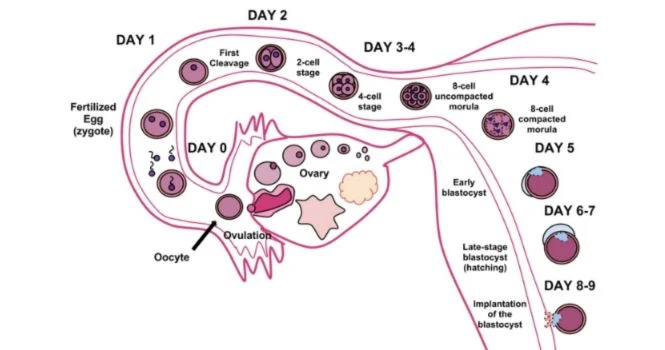Embarking on the journey to parenthood is a time of exciting transformation and eager anticipation. Amidst this joy, it’s essential to remember the importance of preparation, especially when it comes to nutrition.
One nutrient, in particular, stands out for its importance in early pregnancy: Folic Acid.
Let’s see why folic acid is crucial when planning to conceive.
Understanding Folic Acid
Folic acid, also known as folate in its natural form, is a type of B vitamin (B9). It’s well-known for its role in promoting overall health, but it is particularly vital for those planning to conceive because of its involvement in DNA synthesis and cell division.
Folic Acid and Pregnancy
Folic acid plays an indispensable role in the early development of the neural tube during the initial stages of pregnancy. The neural tube, which forms the brain and spinal cord of the baby, develops during the first 28 days of pregnancy, often before a woman even realizes she’s pregnant.
A deficiency of folic acid in the mother’s diet can lead to neural tube defects (NTDs) such as spina bifida (where the spine doesn’t close properly) and anencephaly (severe underdevelopment of the brain). These defects can cause serious health problems, lifelong disability, or even death in babies.
The Right Dosage and Sources of Folic Acid
The Centers for Disease Control and Prevention (CDC) recommends that all women of reproductive age consume 400 micrograms (mcg) of folic acid daily. This dosage should be increased to 600 mcg during pregnancy.
Folic acid can be found naturally in many foods like leafy green vegetables, citrus fruits, and beans. However, to ensure an adequate intake, women planning to conceive should also take a daily over-the-counter prenatal vitamin or folic acid supplement. Many processed foods like cereals and bread are also fortified with folic acid.
When to Start Taking Folic Acid
Ideally, women should start taking folic acid supplements at least one month before conception and continue taking them through the first trimester. This is because the neural tube develops very early in pregnancy, often before a woman even knows she’s pregnant.
The Benefits Beyond Pregnancy
While the role of folic acid in preventing neural tube defects is significant, this nutrient provides several other health benefits too. It aids in the production of red blood cells, reducing the risk of anemia. It may also help prevent heart disease, certain types of cancer, and stroke.
Conclusion
The journey to motherhood is exciting and filled with opportunities to provide the best possible start for your future child.
Taking folic acid is a simple step with profound implications for the healthy development of your baby. As with any supplement, it’s best to consult your doctor before starting folic acid, to discuss the right dosage and other ways to prepare for a healthy pregnancy.
Remember, proper preparation lays the foundation for a smooth pregnancy journey and a healthy baby. So, include folic acid in your pregnancy plan and take a step towards the well-being of your unborn child.













